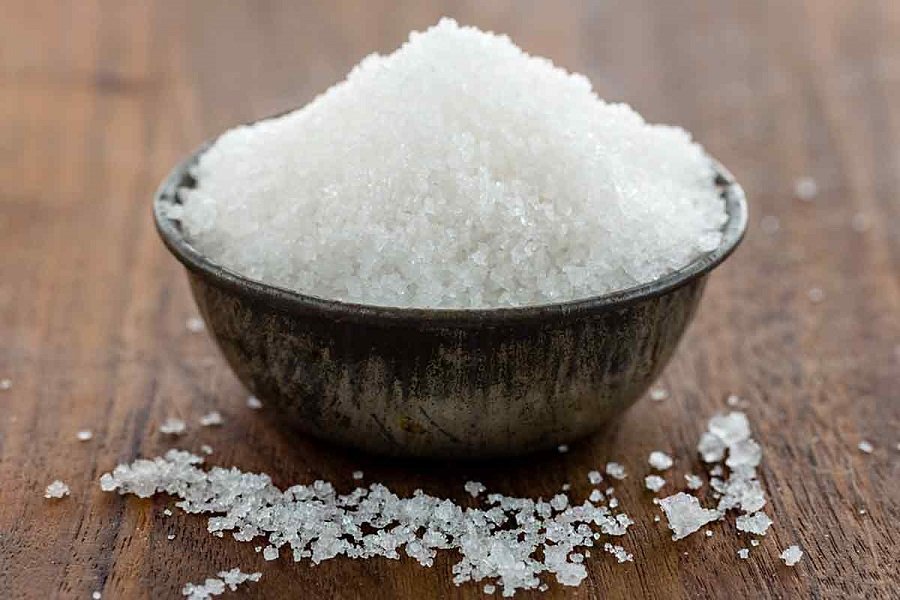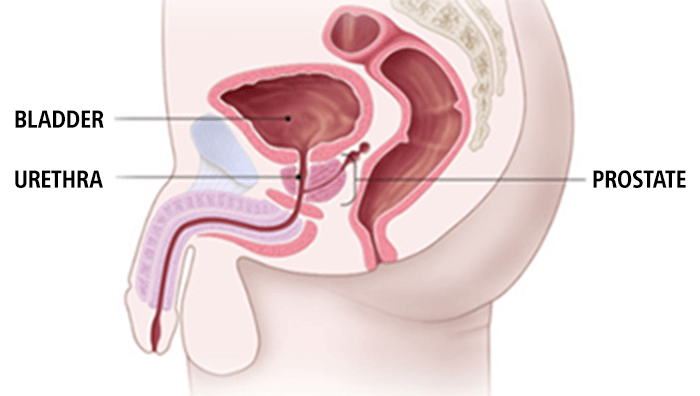Health Essentials
The salt wars will never end!

Salt is useful when taken in moderation
IS SALT ENEMY NUMERO UNO?
I do not have a precise answer to this question but salt is definitely revered in the company of killers.
When heart and blood vessel diseases claim about 18 million lives each year worldwide and hypertension is one of the leading modifiable risk factors (the other factors are uncontrolled diabetes, high cholesterol, obesity, lack of adequate physical activity and cigarette smoking) for heart and blood vessel disease then I leave you to work the math since added salt is very often associated with hypertension.
Not everyone reacts to salt in the same way but for the majority of us anything more than half a teaspoon of salt a day (includes what we cook with, those in our snacks and processed food).
No one is born with a craving for salt, we learn this as we grow and keep eating more salt by the day. Many of us eat much more salt than we need and we are “rewarded” with high blood pressure, heart failure and other inconveniences related to fluid retention.
Do you add extra salt to cooked food? Do meals prepared at home come out of a box or can? Do you eat out of home often? A yes answer to any of the questions could mean you may be having too much salt.
Is it not time to shake off this salt habit? You are probably counting your calories to lose weight and exercising as well so why not watch your salt intake? It could be the cause of your difficulty to control blood pressure.
Salt like many other things is only useful when taken in moderation; we cannot live without it but too much brings a host of troubles. Salt may be obvious as in what we cook with but often times it is hidden. Who would have thought that many processed foods including canned foods such as corned beef, ketchup and some salad dressings contain loads of salt?
Two elements; Sodium and Chlorine make up salt and the sodium is often the centre of controversy. Excess sodium stays in body tissues and holds extra water causing swelling and raising blood pressure.
The elevated blood pressure then puts a strain on the heart. You may be aware that increased blood pressure affects almost all organs and this includes: the eyes, the brain, the kidneys and even the blood vessels.
Invariably people who eat a lot of salt have a high probability of developing hypertension and that may also be another reason for having high blood pressure running through some families.
The answer may be quite simple; most family members have similar eating patterns or tastes so everyone may be prone to an increased-salt diet leading to elevated blood pressure over time.
Many artificial flavours that we use in cooking also contain sodium, so imagine the harm you do when you add some of these flavours to food that you have already added your usual amount of “salt”.
The salt story does not end here. Excess salt intake has been linked with osteoporosis, dementia/forgetfulness and even Alzheimer’s.
It is interesting to watch people eat in restaurants and at home; some people will actually sprinkle salt over their food after almost every bite. People eating in restaurants will use the salt on the table aggressively probably making sure they are recouping every pesewa spent on the meal. Be careful you may be paying more on medication soon.
If your food tastes like there is a salt shortage, thank God and eat as-is. It is an outright CRIME to add salt to already cooked food no matter how bland it may taste. This last statement lays the fact bare; all restaurants that leave extra salt on a dining table are involved in crimes against humanity.
You are not a killer only when you draw a gun or knife to kill, you may use a “slow poison” such as a daily dose of extra salt. We will probably need some human rights activists to help us fight this war. I am really looking forward to the day that salt on restaurant tables will be banned.
No matter how particular you are about the salt content of the food you cook, if food manufacturers and restaurants are not regulated when it comes to the allowed salt content then the battle is only half won.
If we are able to reduce our salt intake to less than half a teaspoon a day (including all the hidden salt), it will be enough to significantly reduce the new cases of hypertension and by extension other heart diseases and complications of hypertension will also be reduced.
This simple act will save our country millions if not billions of Ghana cedis each year.
Reducing Salt Consumption
• Never add salt to cooked food
• Read food labels and avoid those with salt or high salt content (watch sodium)
• Eat a lot of fresh fruits and vegetables; they do not need added salt and they also contain potassium that lowers blood pressure.
• If you need snacks, choose unsalted ones.
• Flavour foods with garlic, onions, fresh herbs and lemon instead of salt
• If you have to add salt to food while cooking, add only sparingly.
Excess salt does not only cause diseases, it also drains our pockets as well as the national coffers as we try to control the damage it has caused. Winning the war against salt needs us to be more proactive; before you put anything in your mouth think about the salt (Sodium) content and make a smart decision.
You could be saving your life and that of others as well as creating wealth just by controlling salt intake.
Now I throw the question back to you; is salt ENEMY NUMERO UNO?
(*salt in this context refers to common salt / table salt etc. Other types of salts MAY have added benefits)
AS ALWAYS LAUGH OFTEN, ENSURE HYGIENE, WALK AND PRAY EVERYDAY AND REMEMBER IT’S A PRICELESS GIFT TO KNOW YOUR NUMBERS (blood sugar, blood pressure, blood cholesterol, BMI)
Dr. Kojo Cobba Essel
Health Essentials Ltd/Mobissel
*Dr. Essel is a Medical Doctor with a keen interest in Lifestyle Medicine, He holds an MBA and is an ISSA Specialist in Exercise Therapy, Fitness Nutrition and Corrective Exercise. He is the author of the award-winning book, ‘Unravelling The Essentials of Health & Wealth.’
Thought for the week – “The taste for salt is not inborn. Saltiness is something we’ve learned and eating salty foods fuels the craving”.
Reference:
1. Health by Choice Not Chance – Aileen Ludington & Hans Diehl
2. Shaking the Salt Habit – Jennifer Nelson & Katherine Zeratsky
By Dr. Kojo Cobba Essel
Health Essentials
The Prostate Has Found Its Voice

The prostate gland, a small but essential organ found only in men, plays a key role in reproductive health. It produces fluid that nourishes, protects, and transports sperm, yet many focus only on its connection to prostate cancer.
Location & Function
- Situated between the bladder and penis, with the rectum behind it.
- The urethra passes through the prostate, carrying urine and semen.
Common Prostate Conditions
1. Prostatitis – Infection of the prostate:
- Symptoms: chills, fever, pus-like urethral discharge, painful urination, groin/testicular pain, painful orgasms, erectile dysfunction.
- Advice: Seek professional help; do not self-medicate.
2. Benign Prostatic Hyperplasia (BPH) – Non-cancerous enlargement of the prostate:
- Symptoms: frequent urination (especially at night), urge incontinence, difficulty starting urination, weak stream, painful urination, blood in urine, terminal dribbling, and in severe cases, inability to urinate.
- BPH can be extremely painful, sometimes compared to labor pains.
3. Prostate Cancer – Common among men, especially black men, often aggressive and with earlier onset:
- Risk Factors: older age, African descent, family history, obesity.
- Symptoms: frequent urination, straining, blood in urine/semen, weak urine flow, new erectile dysfunction; advanced stages may include fatigue, weight loss, and bone pain.
Diagnosis
- Digital rectal examination – checks for irregular or hard areas.
- PSA test, biopsy, ultrasound, CT/MRI/PET scans, bone scan.
Management
- Holistic approaches include watchful waiting, medication, surgery, and radiation (external & brachytherapy).
- Always discuss all options with your healthcare provider.
Risk Reduction Tips
- Regular screening
- Healthy, varied diet rich in fruits and vegetables (carrots, tomatoes, broccoli, kale, cauliflower)
- Maintain a healthy weight
- Exercise at least 5 days a week
Final Advice
- Share this information – the prostate needs support!
- Maintain good hygiene, walk and exercise daily, pray, and know your numbers (blood sugar, blood pressure, cholesterol, BMI).
Thought for the Week:
“There is no magic formula to being happy but making a conscious effort to be happy goes a long way.” – Dr. Kojo Cobba Essel
Dr. Essel invites readers to the La Palm Royal Beach Hotel Wellness Festival on Saturday, November 29, 2025, at 6 a.m., to walk, exercise, network, and share ideas to stay healthy.
Contact: dressel@healthessentialsgh.com
By Dr. Kojo Cobba Essel
Join our WhatsApp Channel now!
https://whatsapp.com/channel/0029VbBElzjInlqHhl1aTU27
Health Essentials
Stop the silent killer: Breaking myths to prevent sudden deaths from high blood pressure

Every week in Ghana, a life is cut short, sometimes in the middle of traffic, sometimes at a desk, sometimes in the quiet of sleep. A father doesn’t come home. A sister doesn’t wake up.
A colleague slumps at work and never gets back up. Families are left asking why and you will hear statements like what happened? Was he sick? I just saw him, he has not shown signs of ailment, what a shock and so on.
Behind many of these sudden tragedies is a quiet, invisible force: high blood pressure, or hypertension. It doesn’t scream for attention. It doesn’t always show symptoms. But it tightens its grip silently on hearts, on brains, on lives.
This is not just a medical issue. It is a human one, it is about behaviour, it is about ignorance and it is about lifestyle. It is the grandmother who never got her blood pressure checked because she felt “fine.”
It is the taxi driver, the statistician, the nurse who ignored his pounding headaches, thinking it was just stress. It is the young lady who was so vibrant at church and no one suspected she could fall and die. Because it shows no symptoms.
The alarming numbers we cannot ignore
The Ghana’s 2023 STEPS Survey on Non-Communicable Diseases conducted by The World Health Organisation, Ghana Health Service and Ghana Statistical Service has revealed findings that should push for action.
According to the report, 21.7 per cent of adults aged 18 to 69 in Ghana are living with high blood pressure. Even more alarming is that 51.1 per cent of those with hypertension are not aware of their condition.
This means that more than half of the people with dangerously high blood pressure are walking around without knowing it until tragedy strikes. That is the real danger of this silent killer.
Literature has shown that hypertension is preventable and manageable. But only if we treat it like the threat, it is. That means regular checkups; that means understanding the risks and that means talking about it openly, urgently, and with compassion.
The deadly power of myths
Why are so many Ghanaians untested or untreated? Is it out of ignorance, or the pervasive myths about hypertension and its treatment?
• Some believe blood pressure medicine “weakens the body” or “shortens life.”
• Some believe blood pressure medicine “weakens the penis and kills sexual drive”
• Others think once you start taking medication, you are “dependent for life.”
• Many say, “I feel fine, so I must be fine.”
These beliefs are not only false, but they are also deadly. The truth, according to the World Health Organisation, is that effective treatment can reduce the risk of stroke by up to 40 per cent and heart attack by 25 per cent. Avoiding treatment does not prevent dependence rather, it accelerates death.
As Dr Patrick Kuma-Aboagye, former Director-General of the Ghana Health Service, has noted, “Hypertension is preventable and treatable, but our biggest battle is misinformation and late detection.”
A national conversation we must have
This is not just a health issue it is a national emergency. Sudden deaths rob families of breadwinners, communities of leaders, and the country of its productivity. In every obituary notice caused by hypertension, there is a story of loss that could have been prevented with a simple blood pressure check and treatment.
Behind every life saved is a moment of awareness, a decision to act, therefore, the media must rise to the challenge.
Radio and television programmes should dedicate regular airtime to demystify hypertension. Newspapers should carry survivor stories, expert interviews, and practical lifestyle advice.
Social media influencers should spread awareness in local languages, reaching young people who assume they are safe.
Public health experts also have a responsibility. Screening must move beyond hospitals into churches, mosques, markets, schools, and workplaces. People should not have to wait for illness to know their BP status.
What we can do together
To stop the silent killer, we need a collective response:
• Check your blood pressure regularly, even if you feel healthy.
• Follow medical advice faithfully if diagnosed because treatment saves lives.
• For healthy lifestyle, eat less salt, reduce alcohol, reduce starchy, fat and oil intake, avoid smoking, and exercise at least 30 minutes daily.
• Encourage one another talk about blood pressure in families, communities, and workplaces.
Conclusion: Silence is killing us
What kills is not just the disease, but the silence, fear, and myths that surround it. The STEPS 2023 report has sounded the alarm: nearly one in five Ghanaian adults has high blood pressure, and more than half don’t even know it.
This is the time for bold conversation, public education, and decisive action. The media, health professionals, policymakers, and ordinary citizens must join forces to expose the myths, spread the facts, and save lives. Let us not wait for another headline.
Let us make blood pressure a national conversation before it becomes a personal tragedy. With awareness, treatment, and collective will, Ghana can stop the silence and stop the sudden deaths from the silent killer.
Written by: Ansah Moses Teye-Akam – Senior Statistician, Sociologist/Scientific Research Organisational Expert.
Email: moses.ansah@ statsghana.gov.gh/ansahmosesteyeakam@ gmail.com.gh Contact: 0244539034 / 0204359034
Join our WhatsApp Channel now!
https://whatsapp.com/channel/0029VbBElzjInlqHhl1aTU27






